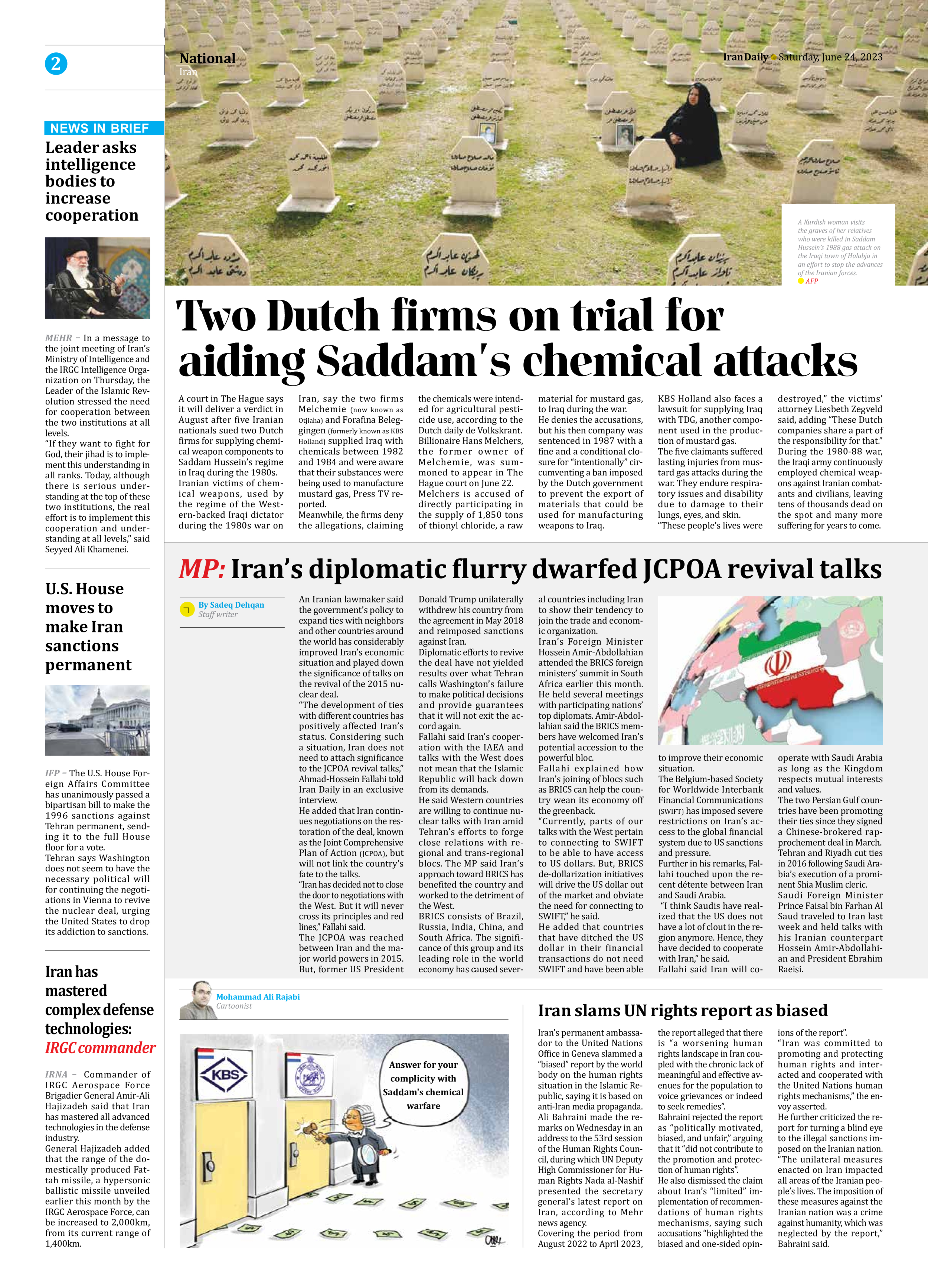
MP: Iran’s diplomatic flurry dwarfed JCPOA revival talks
By Sadeq Dehqan
Staff writer
An Iranian lawmaker said the government’s policy to expand ties with neighbors and other countries around the world has considerably improved Iran’s economic situation and played down the significance of talks on the revival of the 2015 nuclear deal.
“The development of ties with different countries has positively affected Iran’s status. Considering such a situation, Iran does not need to attach significance to the JCPOA revival talks,” Ahmad-Hossein Fallahi told Iran Daily in an exclusive interview.
He added that Iran continues negotiations on the restoration of the deal, known as the Joint Comprehensive Plan of Action (JCPOA), but will not link the country’s fate to the talks.
“Iran has decided not to close the door to negotiations with the West. But it will never cross its principles and red lines,” Fallahi said.
The JCPOA was reached between Iran and the major world powers in 2015. But, former US President Donald Trump unilaterally withdrew his country from the agreement in May 2018 and reimposed sanctions against Iran.
Diplomatic efforts to revive the deal have not yielded results over what Tehran calls Washington’s failure to make political decisions and provide guarantees that it will not exit the accord again.
Fallahi said Iran’s cooperation with the IAEA and talks with the West does not mean that the Islamic Republic will back down from its demands.
He said Western countries are willing to continue nuclear talks with Iran amid Tehran’s efforts to forge close relations with regional and trans-regional blocs. The MP said Iran’s approach toward BRICS has benefited the country and worked to the detriment of the West.
BRICS consists of Brazil, Russia, India, China, and South Africa. The significance of this group and its leading role in the world economy has caused several countries including Iran to show their tendency to join the trade and economic organization.
Iran’s Foreign Minister Hossein Amir-Abdollahian attended the BRICS foreign ministers’ summit in South Africa earlier this month. He held several meetings with participating nations’ top diplomats. Amir-Abdollahian said the BRICS members have welcomed Iran’s potential accession to the powerful bloc.
Fallahi explained how Iran’s joining of blocs such as BRICS can help the country wean its economy off the greenback.
“Currently, parts of our talks with the West pertain to connecting to SWIFT to be able to have access to US dollars. But, BRICS de-dollarization initiatives will drive the US dollar out of the market and obviate the need for connecting to SWIFT,” he said.
He added that countries that have ditched the US dollar in their financial transactions do not need SWIFT and have been able to improve their economic situation.
The Belgium-based Society for Worldwide Interbank Financial Communications (SWIFT) has imposed severe restrictions on Iran’s access to the global financial system due to US sanctions and pressure.
Further in his remarks, Fallahi touched upon the recent détente between Iran and Saudi Arabia.
“I think Saudis have realized that the US does not have a lot of clout in the region anymore. Hence, they have decided to cooperate with Iran,” he said.
Fallahi said Iran will cooperate with Saudi Arabia as long as the Kingdom respects mutual interests and values.
The two Persian Gulf countries have been promoting their ties since they signed a Chinese-brokered rapprochement deal in March.
Tehran and Riyadh cut ties in 2016 following Saudi Arabia’s execution of a prominent Shia Muslim cleric.
Saudi Foreign Minister Prince Faisal bin Farhan Al Saud traveled to Iran last week and held talks with his Iranian counterpart Hossein Amir-Abdollahian and President Ebrahim Raeisi.







